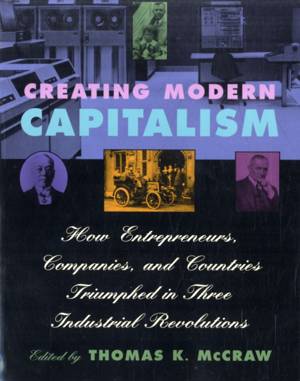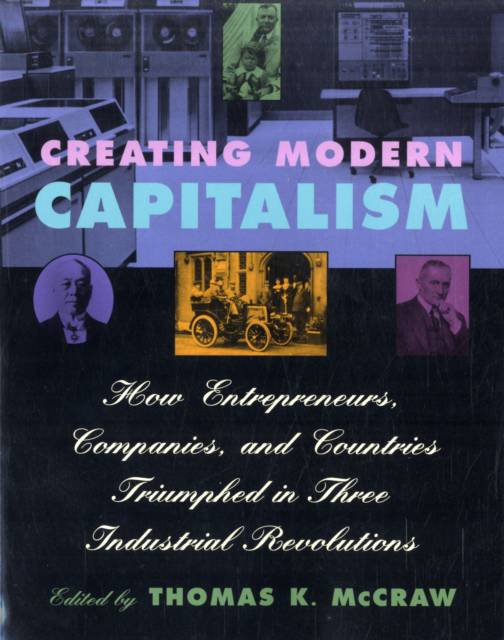
Bedankt voor het vertrouwen het afgelopen jaar! Om jou te bedanken bieden we GRATIS verzending (in België) aan op alles gedurende de hele maand januari.
- Afhalen na 1 uur in een winkel met voorraad
- In januari gratis thuislevering in België
- Ruim aanbod met 7 miljoen producten
Bedankt voor het vertrouwen het afgelopen jaar! Om jou te bedanken bieden we GRATIS verzending (in België) aan op alles gedurende de hele maand januari.
- Afhalen na 1 uur in een winkel met voorraad
- In januari gratis thuislevering in België
- Ruim aanbod met 7 miljoen producten
Zoeken
Creating Modern Capitalism
How Entrepreneurs, Companies, and Countries Triumphed in Three Industrial Revolutions
Thomas K McCraw
Paperback | Engels
€ 88,45
+ 176 punten
Omschrijving
What explains the national economic success of the United States, Britain, Germany, and Japan? What can be learned from the long-term championship performances of leading business firms in each country? How important were specific innovations by individual entrepreneurs? And in the end, what is the true nature of capitalist development? The Pulitzer Prize-winning historian Thomas K. McCraw and his coauthors present penetrating answers to these questions. Creating Modern Capitalism is the first book to explain for a broad audience the interconnections among technological innovation, management science, the power of entrepreneurship, and national economic growth. The authors approach each question from a comparative framework and with a unique triple focus on national economic systems, particular companies, and individual business leaders. Above all, the book focuses on how specific entrepreneurs influenced the economic success of their countries: Josiah Wedgwood and Henry Royce in Britain; August Thyssen and Georg von Siemens in Germany; Henry Ford, Alfred Sloan, and the two Thomas J. Watsons in the United States; Sakichi Toyoda, Masatoshi Ito, and Toshifumi Suzuki in Japan. The product of a three-year collaborative effort at the Harvard Business School, the book combines cutting-edge scholarship with a finely tuned sense of the art of management. It will engage general readers as well as those with a special interest in entrepreneurship and the evolution of national business systems.
Specificaties
Betrokkenen
- Auteur(s):
- Uitgeverij:
Inhoud
- Aantal bladzijden:
- 760
- Taal:
- Engels
Eigenschappen
- Productcode (EAN):
- 9780674175563
- Verschijningsdatum:
- 2/01/1998
- Uitvoering:
- Paperback
- Formaat:
- Trade paperback (VS)
- Afmetingen:
- 175 mm x 233 mm
- Gewicht:
- 1192 g

Alleen bij Standaard Boekhandel
+ 176 punten op je klantenkaart van Standaard Boekhandel
Beoordelingen
We publiceren alleen reviews die voldoen aan de voorwaarden voor reviews. Bekijk onze voorwaarden voor reviews.









